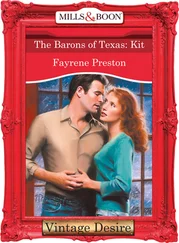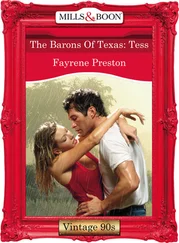“Is Mr. Brown here yet?” I asked.
“He has been here since seven o’clock, ma’am.”
“Since seven?” I said in surprise.
“Yes, ma’am. However, I asked him to wait until you had finished your breakfast.”
Mr. Brown was standing on the back doorstep. He appeared to be wearing the same clothes as before. I apologized for keeping him waiting, but even as I did so I had the sense that I could have been several hours and he would still have been there, waiting patiently. It was a fine morning; the sun was already starting to break through the clouds. Once again, we made our way out to the mounds. However, this time I said that I wished to make a detour via the squash court.
From there I collected the probing iron. Five feet long and pointed at one end, the iron is similar in size and shape to a spear, albeit with a hooped handle at one end. Mr. Brown offered to carry it, but I told him I could manage quite well on my own. Plainly intrigued, he darted inquiring glances in my direction as we walked along. However, I did not enlighten him as to my purpose.
Rabbits ran for cover at our approach. There must have been hundreds of them, a mass of white tails bounding unhurriedly through the long grass and disappearing into Top Hat Wood. My gamekeeper, William Spooner, shoots as many as he can and gives them to Mr. Trim, the butcher in Woodbridge. But now Mr. Trim has said he cannot take any more. Apparently there is no longer the demand. He suggested we send them to the local kennels instead.
“Have you given any thought to which one you would like me to attack first, Mrs. Pretty?” Mr. Brown asked.
“Yes, I have,” I said, and indicated the largest mound. It was the one he had run up before.
Mr. Brown looked at me. Then he shook his head fractionally from side to side.
“I wouldn’t advise that, Mrs. Pretty. Not personally speaking.”
“You would not?”
“No,” he said. “No, I wouldn’t.”
“Why is that?”
“Because it’s all hobbly up the top, with a dip in the middle. That’s usually a sign that a mound has been robbed. In the eighteenth century, thieves used to sink shafts into the tops of the mounds — ‘robbers’ flutes,’ they’re known as — and hope to strike lucky in the middle. You might be better off with one of the smaller ones. Be quicker. Cheaper too,” he added.
“Which one would you advise, then, Mr. Brown?”
He walked over to the smallest mound of all. It was no more than five feet high, although crowned with an unusually thick clump of bracken. He patted the side of it with the flat of his hand.
“I could try this one.”
I needed a few moments to think through the implications of what Mr. Brown was suggesting. I had always assumed that we would start with the largest one. It was what Frank and I had always discussed. It was what we had set our hearts on.
“As you wish,” I said. “However, there is something I would like you to do first.”
I held out the probing iron towards him. “Would you mind pushing this into the mound, to see if you hit anything?”
He made an admirable job of concealing his surprise; his eyebrows hardly moved. All he said was, “From the top, Mrs. Pretty?”
“Please.”
He ran up the side of the mound. Standing at the center, he raised his hands over his head and plunged the probing iron into the ground. For the first three feet or so, it went in quite easily, then there was a muffled thud and Mr. Brown could go no further. He tried again, his face set even more determinedly than before. But again he hit the same obstruction.
“There’s something in there,” he said when he came back down. “No telling what, of course. But there’s something, all right.”
When his breathing had slowed, he examined the probing iron more closely. “I’ve never seen one of these before.”
“My late husband had the blacksmith in Bromeswell make it,” I told him. “To his own design.”
“To his own design?” repeated Mr. Brown, still turning the iron over in his hands. “Is that so?”
I could hear voices coming closer. Spooner and John Jacobs were walking towards us. Jacobs is a thick-set man with sprigs of gray whisker on his cheek. Spooner is a younger man with carefully tended black hair and a large beard. He seems rather shy, although my maid, Ellen, tells me that the local girls think very highly of him. I introduced the two men to Mr. Brown. After shaking hands, they stood about uncertainly, not saying anything. Aware that my presence was proving inhibiting, I left them to make a start.
I was quite wrong about Mr. Brown. He is not a kipper; he is a terrier. When I walked out to the mounds that afternoon, I saw a great spray of soil being thrown up into the air. The bracken had been cleared and a wedge-shaped gash cut in the side of the mound. There was something shocking and strangely moving about the sight, with the grass pulled away and the damp earth exposed. The mound looked naked, even violated.
In order that the men should have somewhere for their tea, I had suggested they use the shepherd’s hut — a corrugated-iron structure on wheels normally kept in the kitchen garden and used for storing tools. This hut had already been hauled across to a patch of flat ground by the edge of the trees. Seeing it in a new setting, I realized how decrepit it was. The sides, in particular, did not seem to be properly fixed to the frame.
The remains of a fire was smoking alongside. As I came closer, I could smell the sweet, resinous smoke of fir cones. Jacobs and Spooner were leaning on their shovels, talking to one another. They stopped talking as soon as they saw me. The three of us stood in a line as earth continued to fly between Mr. Brown’s legs — some, but by no means all of it, landing in a wheelbarrow that had been placed behind him.
Once the barrow was full, Jacobs wheeled it over to the edge of the wood and tipped out the contents onto an already substantial pile. The earth was to be kept in one place so that the mound could be restored to its original shape once the excavation was completed.
Mr. Brown carried on digging for several more minutes, oblivious to anything else. When he straightened up, his knees were shiny. Pieces of mud remained stuck to his cap.
“I just wanted to make sure you had everything you needed,” I said.
“We’re fine, thank you, Mrs. Pretty. Aren’t we, lads?”
Spooner and Jacobs both grinned. I could see they were as transfixed by Mr. Brown as Robert had been. No sooner had this thought crossed my mind than Robert himself came down the steps of the shepherd’s hut. He was swinging a piece of bamboo from side to side and would not meet my eye.
“There you are, Robbie.”
“I haven’t been here long, Mama,” he said abruptly. “Anyway, Mr. Brown has been telling me things.”
“What has he been telling you?”
“Well, for instance, do you know what the most important part of an archaeologist’s body is?”
“No,” I said, “I don’t believe I do.”
“His nose. Isn’t that right, Mr. Brown?”
Mr. Brown started laughing. So too, after a brief pause, did Jacobs and Spooner.
“I don’t want you being a nuisance, Robbie.”
“Oh, he’s no trouble at all,” said Mr. Brown. “Been giving us a hand, haven’t you, young man?”
Robert flushed with pride and embarrassment. “Mr. Brown says you have to smell things out. Also he has been explaining what he has been doing. First he cuts a trench right through the mound. And then he digs down. That’s in case there’s a pit underneath.”
“And is your nose telling you anything so far, Mr. Brown?” I asked.
Bending forward, he picked up a handful of earth and rubbed it between his fingers. “See how it’s all loose? Foamy, even? That’s the backfill from the original digging — a mixture of sand and soil. I’m going in horizontally to begin with. Then I’ll go down to the original level — just like Master Robert said. That could be anything from two to eight feet below the surface. I’ll be able to tell once I’ve reached it, as the soil will be a different color. Darker, probably, on account of the ground having never been disturbed. That’s where I hope to find any burial chamber. It should show up as a rectangle of lighter soil, just like a trapdoor.”
Читать дальше












